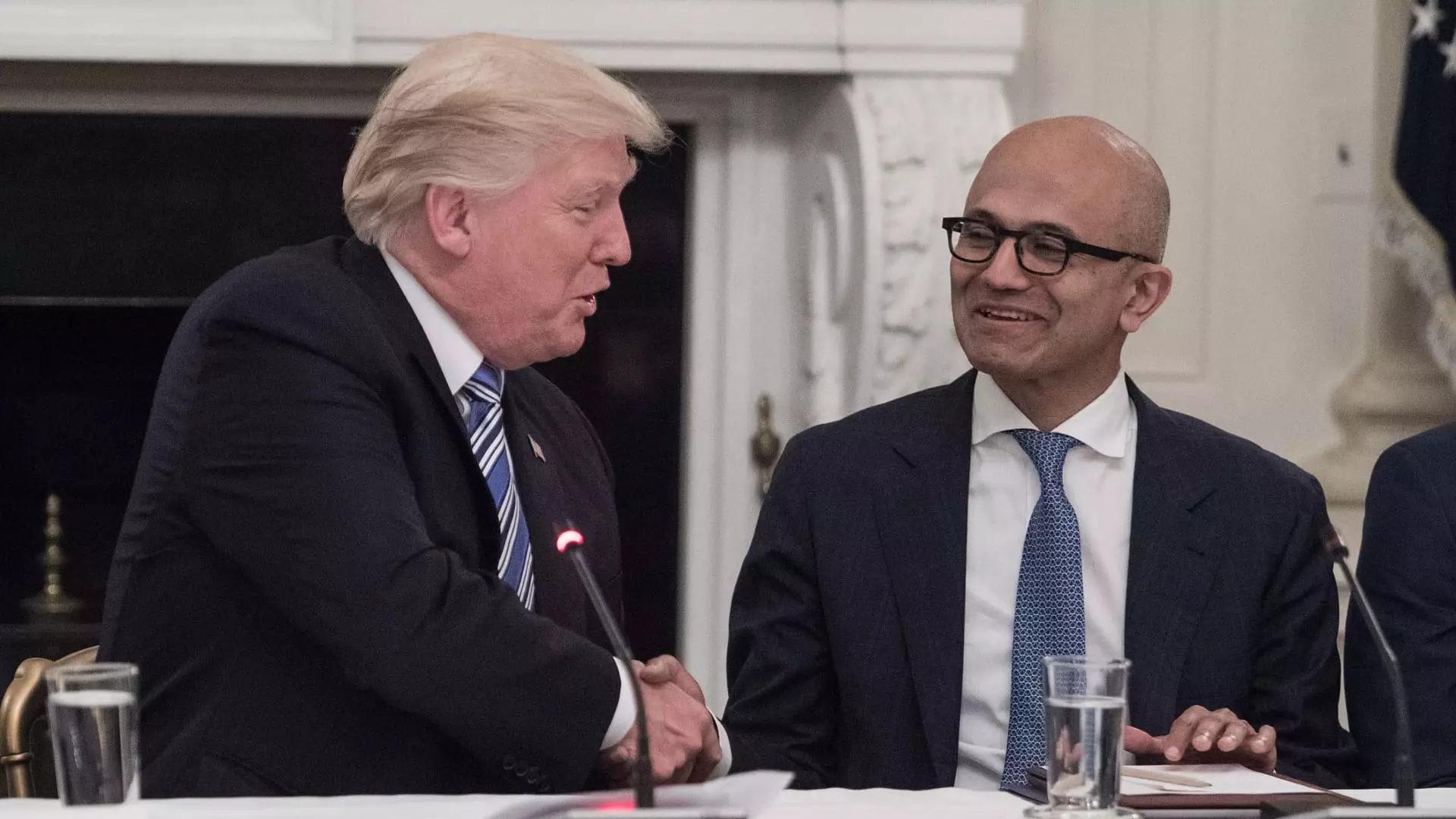In a move that has garnered both attention and controversy, several leading technology companies have pledged substantial financial support to the inauguration fund of President-elect Donald Trump. Microsoft’s announcement on Thursday regarding its $1 million contribution aligns the company with its industry counterparts like Google and Meta, both of which have also committed similar amounts. Such financial contributions underline a complex interplay between corporate interests and political alignment, raising questions about the motivations behind these donations.
The alignment of tech giants with Trump’s upcoming administration seems strategically aimed at fostering favorable conditions for their businesses within the policy landscape. Apple’s CEO, Tim Cook, and OpenAI’s Sam Altman have independently pledged equal amounts to support Trump’s inauguration, positioning themselves within a framework that seeks to ensure technology remains a priority in national discussions. This trend among high-ranking tech executives highlights a growing awareness that political relationships can significantly affect their industries and operations.
Previous Engagements and Future Intentions
Historically, Microsoft’s engagement with Trump is not new. The company donated $500,000 to both Trump’s first inauguration fund and President Biden’s fund, illustrating its ongoing strategy to maintain relationships across the political spectrum. CEO Satya Nadella has met with Trump on several key occasions, including discussions surrounding potential acquisitions like TikTok. These interactions reveal an ongoing desire from Microsoft to navigate turbulent waters in both technological advancements and political maneuverings.
Amidst these contributions, a significant motivator for Microsoft appears to be its interest in the advancement of artificial intelligence policy. The company’s vice chair, Brad Smith, articulated a vision for a robust international strategy that supports American AI technology on a global scale. This concern points to a broader objective among tech leaders: ensuring that U.S. policies optimize for innovation and secure advantages in the rapidly evolving tech landscape. With Trump returning to the White House, Microsoft seems hopeful for policies that could propel its AI endeavors.
The collective financial backing from these tech giants indicates a shift in the traditional relationship between corporate America and political entities. As the lines blur between advocacy and investment, the implications for policy-making are significant. Stakeholders in technology are increasingly recognizing that their growth and success could be intertwined with political allegiances. This trend raises ethical considerations regarding the impact of such donations on democratic processes and public policy.
As tech giants rally behind Trump’s inauguration, they are not merely making contributions but rather entering into strategic alliances designed to safeguard their interests. The intersection of technology and politics will likely shape both spheres in the times to come, revealing the evolving landscape where corporate influence plays a pivotal role in governance.

